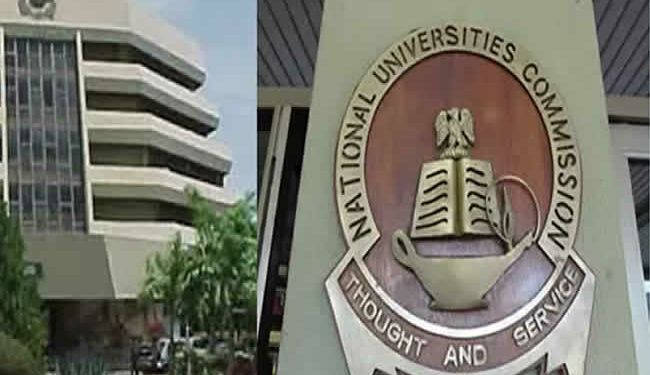UNIVERSITY NEWS
Nigeria’s universities can only admit 700,000 out of 2 million annual applicants – NUC
Nigeria’s universities can only admit 700,000 out of 2 million annual applicants – NUC

The National Universities Commission (NUC) has disclosed that Nigeria’s higher education system is grappling with a significant capacity issue, as the country’s universities can only accommodate 700,000 students out of the two million applicants seeking admission annually.
Dr. Chris Maiyaki, Acting Executive Secretary of the NUC revealed this at the Annual General Meeting of the International Studies Alumni Association at Ahmadu Bello University (ABU), Zaria.
Maiyaki highlighted the widening gap between the demand for higher education and the available slots across the nation’s 274 universities.
He explained that the disparity between the number of applicants and the limited capacity of Nigeria’s tertiary institutions leaves a huge chunk of the applicants unaccounted for each year, creating a growing challenge for the education sector.
NUC’s transnational education initiative
In an effort to address this issue, Maiyaki noted that the NUC has introduced a transnational education initiative. This initiative is designed to attract foreign investors who would establish branch campuses and other educational institutions in Nigeria, expanding the number of available university placements.
“As a matter of policy, the NUC consummated a transnational-education initiative where foreign investors would come into the country and open branch campuses and undertake training arrangements, open teaching institutions among other several arrangements.” He said.
According to him, this plan will be implemented under strict regulatory oversight by the NUC to ensure that any new institutions maintain the academic standards required by the commission.
He praised the association for organizing the AGM and for its ongoing efforts to support academic growth at ABU, including donations of books and other materials to the Department of Political Science and International Studies.
He emphasized that while government funding is essential, universities should also seek private financial support to enhance resources.
Dr. Yusuf Tanko Sununu, highlighted the federal government’s commitment to education reform. He stated that student loan law is expected to transform the educational landscape in Nigeria.
Tinubu also pointed out that the removal of fuel subsidies would pave the way for long-term benefits, including investments in infrastructure, energy, and public services, which will contribute to national prosperity.
The Federal Government has awarded contracts for broadband infrastructure in 18 Nigerian universities and 20 markets. Each project is valued at N400 million, as approved by the Federal Executive Council (FEC).
ALSO READ: 10 Easy Online Degrees to Study
Discover more from 9jaPolyTv
Subscribe to get the latest posts sent to your email.




















